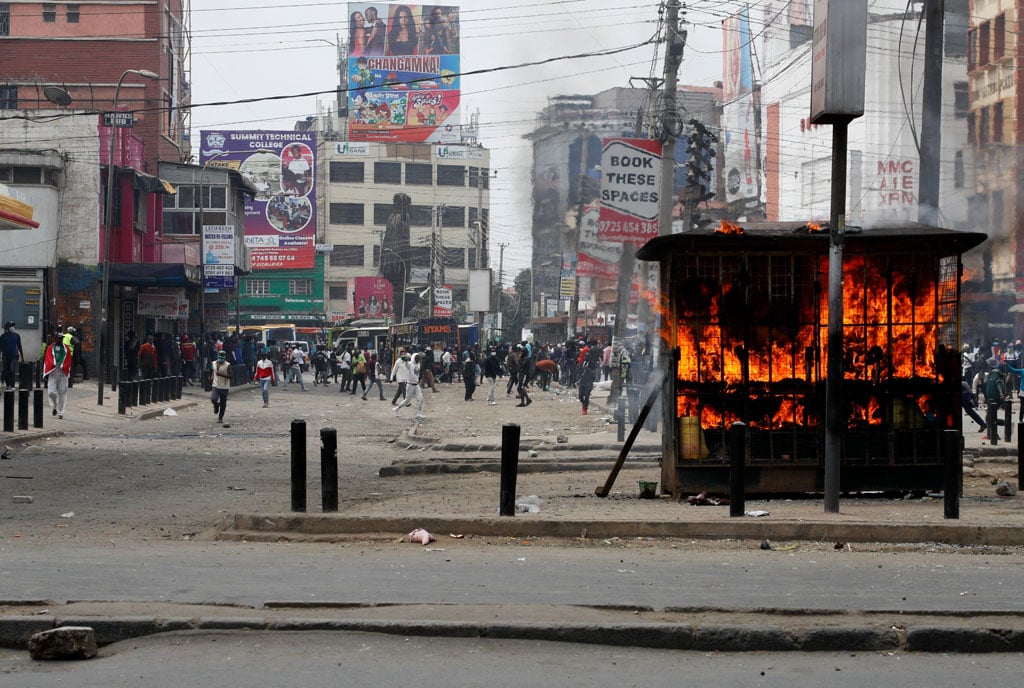Prime
Classroom made of dry banana leaves shocks leaders

Primary Three pupils in Sokoso Primary School in Galilaaya Sub-county, Kayunga District in their classroom made of dry banana leaves on June 7, 2024. PHOTO/FRED MUZAALE
What you need to know:
- The leaders, who included the district chairperson, Mr Andrew Muwonge, Mr Moses Karangwa, the Kayunga District National Resistance Movement (NRM) chairman, Mr Charles Tebandeke, the Bbaale County MP, and Ms Mariam Kaberuka, the deputy resident district commissioner had visited the area to hold a sensitisation meeting.
A section of leaders in Kayunga District were appalled when they found pupils in a public school studying in a makeshift classroom constructed using dry banana leaves.
The leaders found pupils learning in the makeshift classroom at Sokoso Primary School in Galilaaya Sub-county, Bbaale County.
The pupils were seated on stones while others were seated on bare ground as teaching went on under a tree shade.
The leaders, who included the district chairperson, Mr Andrew Muwonge, Mr Moses Karangwa, the Kayunga District National Resistance Movement (NRM) chairman, Mr Charles Tebandeke, the Bbaale County MP, and Ms Mariam Kaberuka, the deputy resident district commissioner, had visited the area to hold a sensitisation meeting.
They also planned to launch the maintenance of the 11-kilometre Galilaaya-Nakatuli-Bbaale Road.
“We are going to construct a classroom for you this coming financial year,” Mr Muwonge pledged as the pupils cheered.
The school with an enrollment of 450 pupils, however, has four permanent classrooms.
Mr Tebandeke also promised to donate maize flour so that pupils can have lunch at school.
Mr Muwonge said area leaders had not notified him about the situation at the school.
Mr Alex Lumundu, the head teacher, said the classroom was erected after the school, which initially stopped at Primary Six, admitted Primary Seven learners.
“We had no option, but to put up a makeshift classroom so that pupils can study,” the head teacher said.
He, however, said when it rains the teachers halt teaching and the pupils take refuge in the permanent classrooms.
Mr Lumundu also told this publication that because of the poor learning environment, pupils’ attendance is irregular.
Mr Tebandeke urged residents to invest in their children’s education because those in public schools can excel academically if the necessary resources are available and teachers and pupils utilise such resources.
Mr Ramadhan Simali, the Kayunga District inspector of schools, said the makeshift classroom at the school would be closed when the district constructs a permanent classroom.
“That is the environment some of our children are studying under, but it is a temporary structure,” Mr Simali said.




